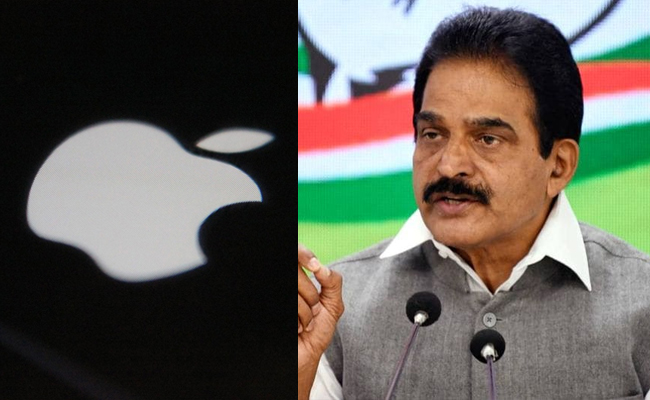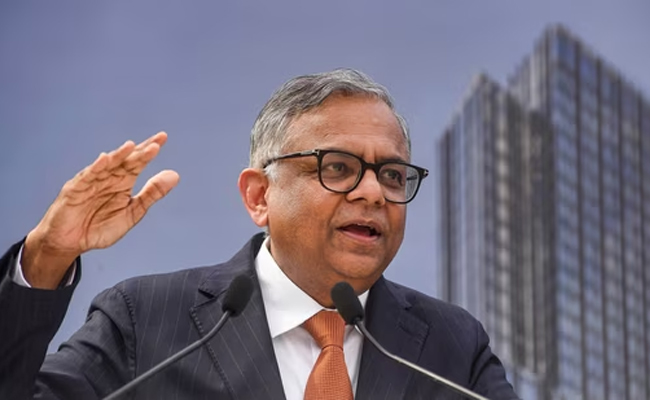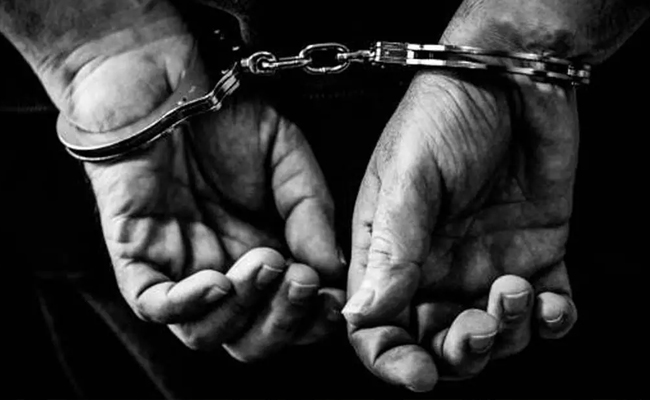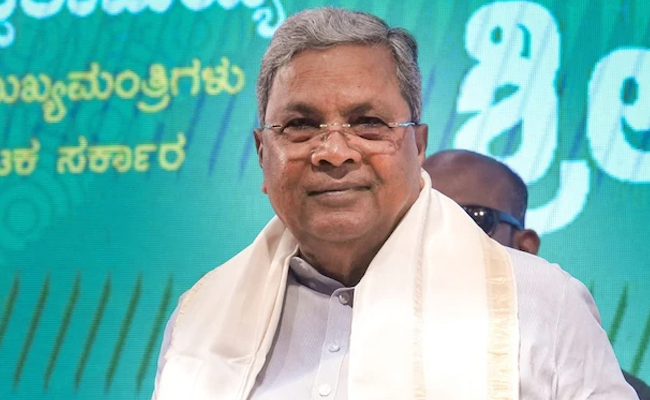New Delhi: Senior Congress leader and party organization in-charge, KC Venugopal, claimed on Saturday that a "malicious spyware" had been detected on his phone. Venugopal, who represents Kerala's Alappuzha constituency in Parliament, shared this information through a post on the social media platform X.
"Thank you PM Modi ji, for sending your favourite malicious spyware on my phone also," Venugopal wrote. He added, "Apple has been kind enough to intimate me about this special present of yours!"
Venugopal also shared a screenshot of the alert he received from Apple, which read: "This is not a repeat notice — this is to inform you that we detected another attack against your device."
Venugopal accused the Modi government of acting in a "criminal and unconstitutional manner" by targeting political opponents and invading their privacy. "The message of the Lok Sabha elections was that the people reject any attack on the Constitution and the BJP’s fascist agenda," he said.
He vowed to oppose what he described as a "blatantly unconstitutional act" and a breach of privacy.
Let the Truth be known. If you read VB and like VB, please be a VB Supporter and Help us deliver the Truth to one and all.
Jamshedpur (PTI): Tata Group Chairman N Chandrasekaran on Tuesday hoped that the current conflict between Iran and the US-Israel does not affect the supply chain, and said the conglomerate has plans to mitigate risks that can emanate from the ongoing war in West Asia.
He also emphasised on the safety of employees of Tata group companies working in West Asia.
"Geopolitics is the most unpredictable situation. Last year was also a tough year. I think things will settle down soon, and I hope that the supply chain should not be a problem. As uncertainty prevailed in the geopolitical situation, we have planned to mitigate risks that can emanate from the prevailing situation, not only for the Tata Group but also for the country," he said.
Chandrasekaran, along with Tata Trusts Chairman Noel Tata and Tata Steel CEO and Managing Director T V Narendran and heads of various group companies, was here to pay tribute to Tata Steel Founder Jamsetji Nusserwanji Tata on his 187th birth anniversary.
He said Tata Steel procures limestone from West Asia and has enough inventory.
"Tata Steel will diversify for alternative sources. We are confident that it will not be a problem," he said.
Chandrasekaran also said the safety of employees working in West Asia is now the group's priority.
"Our employees are working there in service companies, hotels. Air India planes are flying. Our main priority is the safety of our employees. Our group has been active for the last three days. All employees are safe," he said.
The Tata Group chairman said that there may be some ups and downs in businesses in view of the prevailing situation.
"If the business gets affected for a few days and months, it will be recovered, but our top priority is the safety of our employees and their families. We plan for the civilians and risk mitigation, safety of employees and business continuity, supply eco-system and our customers," he said.
Replying to a query on artificial intelligence, Chandrasekaran said AI offers plenty of opportunities for Tata Consultancy Services (TCS).
Whenever there is such a technology change, people get anxious that everything will be automated, which will risk their employment, he said.
"Even discussions take place about which business will go up or down, but companies such as Tata Steel and Tata Motors integrate these tools to take full advantage, and TCS has a vast opportunity in the AI sector," he said.
He also said the group's businesses are expanding, and its employee base was around 7.5 lakh five years ago, and "today, it is over 11 lakh".
"Many manufacturing jobs are coming up with our expansion plan, and these figures are likely to go up to 15 lakh in the next five-six years. We need skilled people...young people from all disciplines," Chandrasekaran said, adding that the group was also investing in skill development.
Extending greetings to the people on the occasion of the birth anniversary of the Tata Steel founder, Chandrasekaran said he was happy to be in Jamshedpur.
Tata Steel, which will complete 120 years of operations this May, continues to thrive and is pushing forward with new technology, he said.
In Jamshedpur, he said, Tata Motors is also investing in building next-generation technology using hydrogen.
Tata Power is also expanding its partnership with Tata Steel and Tata Motors in renewable energy technology, he said.
"Many things are happening, and we would like to see how we can be part of the ecosystem and continue to grow," he said.
Asked about his meeting with Jharkhand Chief Minister Hemant Soren in Ranchi on Monday, Chandrasekaran said it was constructive.
"We have announced an investment of Rs 11,000 crore to develop something to address carbon footprint," he said.





